Executive Interviews
Our Executive Interviews feature top leaders from across the disciplines that we specialise in, sharing their career advice and experience with candidates seeking success in those sectors.
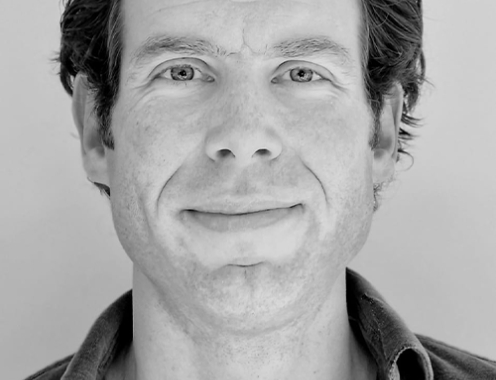
Wopke Kooistra - Chief Financial Officer at Technobis
Wopke Kooistra is the Chief Financial Officer at Technobis, a group of engineering companies developing and manufacturing high-tech instruments and modules for businesses worldwide.
Wopke discusses his journey to becoming a CFO without a set career plan, the most rewarding aspects of his role, and key lessons learned. He also shares an insight into Technobis, including the key drivers to success and challenges that await.
What excites you about working for Technobis?
What excites me is our mission for society. We make pharmaceutical equipment that helps pharma companies speed up their R&D processes for new medicines, ultimately bringing medicines to patients faster.
Within Technobis, we also help healthcare start-ups bring their product and ideas to the market. For example, a company made a specific medical tong with sensors to better operate on the patient, as it relays immediate feedback. We helped the company make a prototype, develop it further, and scale up production if needed.
Also, what excites me is that it is tangible products that we make. We have a pretty diverse and dynamic group of 60 people, working in Engineering, R&D, Production, Sales, Purchasing, Finance, etc., all together under one roof. The size also means you know everyone, which is nice; I have worked with larger companies before, but I really like smaller, entrepreneurial-focused ones.
Is the entrepreneurial side something you have consciously followed?
It was more something that came on my path. In college, I studied Tax Economics, and I started as a Tax Lawyer/Tax Economist at PwC. But, after two years, it wasn’t making me happy, and I questioned what I was doing. You are educated to become a specialized consultant on a small piece of legislation, and that was not for me.
My father started a horse gear/equipment company with some others and needed assistance to speed up the business online, so I helped out. Looking back, I don't know how those pieces fit together. From an outside point of view, you wouldn't think that the Tax Lawyer would be entrepreneurial, but they fit together somehow. It always makes me enthusiastic and energetic to build out a company and be curious about how it can evolve.
What is the most rewarding part of your role as CFO?
As CFO and part of the Finance team, we are not involved in the day-to-day building of the pharmaceutical equipment, engineering, or developing new ideas for our customers. But what we do and what I'm proud of is keeping the company financially safe.
When I joined, the focus was more on taking the product to market and keeping the customer happy. I have shifted this focus slightly, as it’s important not to forget your financial health.
For example, we introduced down payments for all our equipment. People said, “No, we cannot do that,” but we had to do it to make our cashflow healthy. That worked out fine.
Before, we also liked to have a lot of stock here to be able to service our customers directly. We try to manage that a bit more in balance with the demand from our customer base. So, as a Finance team, we make the business more financially sound and business savvy.
When I worked at bigger companies, you always had a more specialized role. Here, as the company is small, we do everything and that's what I love. Sometimes it's very operational, sometimes it's more strategic, but I like the mix.
What are the key drivers to success for the business?
Staying innovative is key, so we spend a lot of time and money on innovation. We have started co-developing a new pharmaceutical machine with Pfizer, which we started four years ago because they saw a gap in their drug development process. It took some sweat and tears!
As we have the crystallization equipment, we have had a long-standing relationship with Pfizer, but also with other companies. Due to our size, we are quite agile and quick, so they approached us with the idea, which we took into development.
What’s key here is the stable business that we are driving; we saw that declining this year because many pharmaceutical companies were reorganizing after the corona pandemic and the demand for crystallization products declining. So, this partnership came as a gift from heaven – now the product is in the market, and we already see it flying. Not only for Pfizer, but many pharmaceutical companies have already purchased one or multiple or have an interest to purchase, so that is really balancing out now.
For the pharmaceutical equipment, our sales pipeline is very seasonal. It’s very back-end loaded in the year. So, the last quarter is booming for us because as many pharmaceutical companies or research companies spent their budgets, so it's important to track the pipelines throughout the year to maintain our cashflow health.
What challenges await your business and how do you hope to overcome them?
Getting the new machine into the market is a key focus for us. We are now focusing on some big companies that are going to work with the machine, and in 2025 we hope to double our sales.
The hope for us is that the crystallization stabilizes a bit and then we can grow there, too.
What have you learned as a leader in the last 12 months?
What I learned is that you can read about it, but to see it is something else.
That co-development with a customer is so important to get success. We could never have done this on our own.
The feedback that we get from Pfizer after working with the machine is completely different from how we would approach it, as there are more chemist-savvy people at Pfizer and more mechanically-savvy people at Technobis. The combination is key. Without that, we wouldn’t have the machine ready to go or up to customer standards, leading to financial issues as the machine has helped us overcome the drop in our existing portfolio. True partnering.
Additionally, as a leader, what we did do - but I think we could have done better - is having people provide better market intel and insights. I say that because after experiencing the drop in sales, I think if you had the right network, we could have predicted it a bit earlier.
Now, when we talk to people in our network, we get good intel. Combining that with our sales analytics creates a good picture for us and helps serve our story to the banks, our shareholders, etc. So, having a network of people is something I learned.
How does that impact the culture here?
I think people at Technobis are flexible. The entrepreneurial spirit is here; we are very good at fixing problems, which can also be seen as a negative...
Sometimes that means, in the longer term, things are postponed slightly, so that's something we can work on as a company.
Of course, the decline in sales was a shock to us and we needed to get together as a team again to overcome this. Unfortunately, we had to let go of some people at that time.
From a leadership perspective, how have you managed to retain talent? Is there something that you've learnt or changed over the last 12 months?
What is key is the open communication from everyone. Every year we start slow, because of the seasonal pattern, but 2024 was extremely slow.
We got together as a company in March – we didn’t exactly know what was going on but saw many organizations reorganizing and thought it influenced our sales - so people could understand that something was going on.
When we had a clear plan together with our shareholders and the bank’s involvement, we communicated that immediately to the organization.
We needed to rebalance the organization, and I think people appreciated that. It's not a nice message to spread, but they saw the urgency. It was a one-time fix.
Also, the people we needed to let go of understand the decision; what’s special to me is they said, “Although it's not nice for me, I had a tremendously good time here, definitely learned a lot, and you were always fair and square.” That’s key.
What does sustainability look like for your industry or company? Is that something that's on your radar?
We're not a big user of resources here; our production flow is quite small and not energy intensive. However, we focus on the efficiency of our machines. For example, partly why our new machine, the ReactAll™, is so successful is because it uses only a tenth of the material that Laborant uses in analyzing the reactions between the fluids that they trial for their medicines.
Other equipment uses a tenfold of those expensive and sometimes environmentally hazardous materials.
What strategies do you use to develop innovative, diverse teams?
When I joined more than a year ago, the team was already diverse. There are only three of us - one lady and two men. The most important thing is setting clear focus areas and responsibilities. I like to give a lot of freedom, but with opportunities for openness to check in and ask for help.
That really helped form the team and the freedom to operate within their area fully. For example, one of my teammates solely focuses on implementing part of the new ERP system. She loves it because it gives her a full focus and she's responsible for the project. She sometimes checks in to verify something. I think that's the key to building a successful team.
When you joined, did you look at the processes and reorganize the structure of people’s responsibilities?
We mainly reorganized the areas that each person was responsible for. A simple example is when I joined, the communication between us and creditors was poor. That was because a team member was responsible for it, and it wasn’t his key strength. However, he was very good in other areas of Finance.
I don’t think he was very happy with his responsibility, and neither he nor the company benefited. Instead, we said, “I take that part, and you take that part.” At that point, you saw people breathe a sigh of relief again.
Sometimes, that also happens with tools. Forecasting our cashflow here is key because we are an SME, so we do it on our own. The tools that we previously used were not adequate, so we changed them. That takes people a bit of time to overcome, as they are not used to certain tools, but now the process works much better, and we have their buy-in.
What advice would you give to someone starting their career in Finance?
I didn’t have a typical Finance career, because I started as a Tax Lawyer/Tax Economist at PwC. However, what I am proud of is taking the chance to try different things and change, as things work out in the end. I never figured that I would be a company CFO.
My advice would be to try and change roles when you feel stuck. What helps with that is having a good sponsor or someone in your network who truly sees something in you – sometimes that can come down to luck – but I had that in ERIKS and worked for the board of directors for two-plus years. They saw something in me, so I received more responsibilities and that’s where you learn really fast.
When you know you want to move on, where have you found the next opportunity?
Gaining that opportunity at ERIKS was a key step in my career, because I wasn’t happy at PwC. After two years of experience, I went into the horse-riding equipment business with my father. I did that for another two years and then sold the company. That was really fun, but I had to think about what’s next.
A friend knew someone working at ERIKS was looking for a Business Controller for the head office. I originally didn't know the company, but I researched it and wrote an open letter.
While I was researching, I learned that ERIKS was a distributer of technical goods, owned by SHV, with a large office in the Netherlands.
After I started, ERIKS gave me endless opportunities.
That’s brilliant. Being open to seeing what the opportunities were and embracing them has led you on this great journey.
Yes, and learn while you're doing it. I never had a concreate plan and my journey was a bit weird.
If you knew with certainty you wanted to be a CFO, you’d probably take different career steps than I. Many CFOs start as an Accountant for a couple of years, then work in a company as a Business Controller or Financial Controller, and then maybe move to a CFO role.
My advice is if deep down in your heart, you know that you have to take a different turn, take it. I see too many people not make the change because of many reasons. Those may be valid, but if you don’t make the move, you won’t be happier, as you already feel and know the role is not for you.
What is a memorable moment from your career and why?
What comes to mind now is at my previous company, we made big machines that printed sustainable food packaging. We had a huge customer in US that was adopting our machines really fast, but we got too reliant on them.
That customer got into financial problems - they lied to us, actually, and stopped paying. That was a time where I learned a lot as a person, but also as a Finance professional; how people interact and sometimes think about their own interests first and not the company’s. It was a tough time.
How did you get through that?
For me, it’s always important to go into fixing mode with the people that really matter. The shareholder and the management team were important stakeholders. So, it was important to get a plan together to get it fixed. It wasn’t nice as we had to let go of many people to help the company survive. It was tough and I also left.
It was a big lesson to learn as a person.
Sometimes you can learn more when things don't go as expected.
What risks have you taken throughout your career and how did they help you to get to CFO?
As I said, I didn't plan my career, I just went from one role to the other. I like to try new things. For example, at ERIKS, I was responsible for all the web shops worldwide and the EDI connections between us and the customers. It was a completely new experience for me. Yes, I did some shop work in the horse-riding business, but that was much smaller.
I like to take the challenge. In my previous company, the ERP system needed to be renewed completely because it was so old, almost at the level of breakdown. We needed to get that fixed and I had never implemented an ERP, but I did it with my team. Of course, some things went wrong and some went right. In the end, with a lot of focus, dedication, and teamwork, we got it fixed.
But we also had a US entity, and their ERP parts were 25 years old. It was one server, and it could have broken down any moment.
We did our ERP in two months. It was crazy, but we got it right, but then the server broke down after one week of going live... I can laugh about it now!
What is your advice for aspiring leaders?
Be open to new projects. Do things that you maybe did not do before and do what's needed in the company. Take those risks because you learn a lot from them.
Later, I learned a lot by truly daring to rely on my team. That helps build team spirit.
What I like to do as a business leader is be very transparent, open, and give a lot of clarity, so people know what to expect and how they can contribute to the success of the company.
If you could change one thing in your career, what would it be?
I don't think I’d like to change a lot of things.
In a life, you can only do a little portion of what's available in a market. It’s a bit of a daydream, but I don't know if I would have been a good physician – I would like to, but it's almost impossible that you would be able to do different things in life.
Maybe in a couple of years, I would like to do something completely different, a governmental job or working in sustainability, helping people, for example.
Why did you choose Tax?
In high school, I liked Economics and Maths. My father was also a Lawyer, and I thought the mix was nice.
What would have been your second career choice?
Apart from becoming a football player, I don’t have any previous wishes.
Do you play football?
I did when I was young, and I also went to the US to play for college. But I'm not nearly as good as I needed to be. I liked it though.
Thank you to Wopke for speaking to Georgia Wright, Director in our Finance & Accountancy recruitment division in the Netherlands.
Views and opinions contained within our Executive Interviews are those of the interviewee and not views shared by EMEA Recruitment.
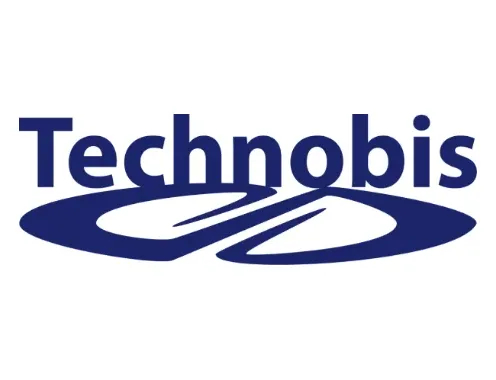
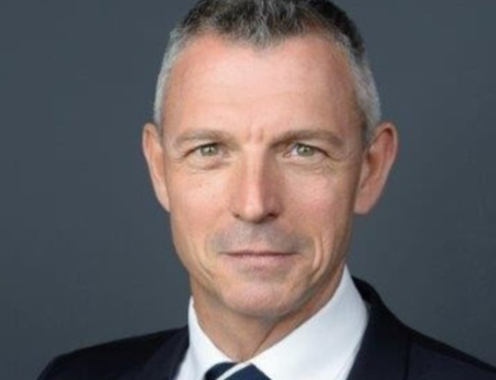
Armand Sohet - Chief Sustainability, HR and Communications Officer
Armand Sohet is the Chief Sustainability, HR and Communications Officer at AkzoNobel in Amsterdam. He is an international HR leader and a true change agent with experience across diverse industries, including automotive, pharmaceuticals, software, defence, and energy.
Armand has successfully shaped HR organizations to support business strategy and enhance efficiency. His expertise extends to streamlining processes, leveraging big data, and developing unique KPIs for the function.
You mentioned that your team or other colleagues might sometimes overcomplicate things in HR. It struck me that you might have a way of simplifying complex ideas and presenting them in a business-oriented manner. Could you share a bit of insight into that?
James Burnham, who inspired George Orwell, wrote The Managerial Revolution in 1941. Burnham describes how capitalism evolved in the 20th century, shifting from ownership-based to management-based structures - a point that circles back to Max Weber’s ideas on bureaucracy in modern capitalism.
Burnham observed that, unlike in the past when businesses were led by their owners, the corporate landscape is now increasingly run by technocrats, bureaucrats, and managers. This transformation happened long ago, yet we didn’t fully notice its impact. Burnham’s concerns seem more relevant than ever, particularly with the rise of bureaucracy. This type of structure exists in government and industry alike, particularly in Europe and noticeably in France. It's often disconnected from real productivity or shareholder interests.
Take the case of my own HR function, though the same applies to all functions. I had 35 senior executives in a 700-person department - a high number for a streamlined operation. Instead of driving efficiency, this excess of top managers slowed down decision-making. It wasn’t the individuals who were at fault; all were high-quality professionals. Over the last 18 months, I undertook a drastic simplification of the organization, reducing top management by more than 40%. The result? Far from creating frustration, our employee satisfaction survey shows higher engagement, and the organization is now far more responsive to business needs.
The second key to success is the smart use of technology. While tech promises efficiency, it often has the opposite effect. Take ERP systems like SAP, which were supposed to streamline processes. Instead, they have added layers of complexity to functions like Finance and HR. The productivity gains we expected haven’t materialized - what the American economist Robert Solow called the "productivity paradox" of technology in business. Conversely, leveraging big data tools flexibly allows for quantum leaps in data-driven decision-making.
Put simply, technology is a useful servant but a dangerous master.
Finally, driving productivity and simplicity requires careful selection of the people who remain in your organization. The shorter the structures, the more decisive the human factor becomes. In the end, as always, people make the difference.
Do you think that’s just a reflection of past technologies? Or do you believe future technologies might have a greater capability to impact productivity and achieve what earlier tech aimed to deliver?
Since I started working, I have observed five major technological revolutions: the personal computer, the internet, social media, big data, and now AI. The most significant was undoubtedly the PC, which could reduce tasks that once took hours to just minutes, almost overnight.
The internet followed, greatly enhancing personal productivity and work efficiency. Suddenly, you could instantly access critical information, such as exchange rates for drafting employment contracts worldwide - data that was previously complex and time-consuming to gather.
Social media has had an ambiguous impact on productivity. On one hand, it has been a major distraction. On the other, LinkedIn, for example, has dramatically lowered recruitment costs. This shift, particularly in corporate communications, validated Marshall McLuhan’s famous theory: The medium is the message.
However, a major, often overlooked reality is the gap between the grand promises of technology vendors and the actual business impact. Without high-quality data, there is no meaningful analysis or decision-making. Achieving quality data requires disciplined system architecture and harmonization - an arduous task few companies execute well.
Even with perfect data, transforming it into actionable insights remains a challenge. I often paraphrase Johan Cruyff, the legendary Dutch footballer: Playing HR is simple, but playing simple HR is the hardest thing there is.
Will the Gen Z professionals coming into HR naturally gravitate towards data and tech, and therefore make that transition?
I don’t believe categorizing individuals by their year of birth makes much sense historically. The debate between the “ancients” and the “moderns” has existed since ancient Greece. The reality is that perspectives change depending on whether you have your life ahead of you or behind you. Besides, I wonder what consultants will talk about after Generation Z - since we’ve run out of letters. Perhaps that’s why everyone is focusing on AI: a return to the start of the alphabet, ensuring endless discussion topics.
More seriously, my experiments with AI within my teams - including those under 30 - have not been particularly conclusive. For example, I had a young team member organizing AI awareness sessions who had never used ChatGPT, Google Gemini, or Meta AI. Likewise, when I asked our creative department to generate an artificial image representing "the future of paint," I expected rapid responses using DALL-E, ImageFX, Adobe Firefly, or similar tools. Instead, I was told they were “studying the request with the external communications agency.”
This highlights a striking gap between the rhetoric surrounding technology and its actual application in the workplace.
Maybe there's an assumption on my part that people are more digital or tech-savvy in that age group. I guess it's a sweeping statement.
It is, but it’s a common one. People assume younger generations are naturally more tech-savvy, but that’s not always the case. Digital fluency isn’t just about age - it’s about mindset and exposure. That’s why I actively seek out people who are willing to learn and apply technology effectively, regardless of their background.
When I was working at my last company, I also taught at Zurich University. I would always ask faculty to point me toward their best students. One of them was a Danish student, Philip. He had no particular interest in HR, but I convinced him to give it a try. He started as a trainee and later joined permanently.
He had no prior experience in Compensation & Benefits or HR, but within months, he single-handedly replaced an entire three-person team. Why? Because he understood numbers, systems, and mechanisms better than the so-called experts.
I hired him in November, and by March, he was responsible for delivering the company’s bonuses. He nailed it - so much so that he received a standing ovation. And remember, this was someone who didn’t know HR, hadn’t worked with SAP, and had never done this before. He simply had the right mindset.
If I were hiring today, I’d continue looking outside traditional HR circles - Finance, Accounting, R&D, Marketing. The best hires often come from unexpected places.
I’d love to hear more about what drives you and where your energy comes from.
Energy is everything. It’s what fuels the world - whether coal, oil, or electricity. Nations rise and fall depending on their access to energy. If you think about it, the history of economy can almost be divided into pre-oil and post-oil eras.
The same applies to individuals. Without energy, nothing moves. Nothing changes. As a leader, you need to generate energy and channel it effectively, absorb stress, and radiate energy.
A good friend of mine once said there are two types of people: energizers and vampires. Energizers lift people up, bring enthusiasm, and drive things forward. Vampires drain the room, suck the motivation out of a team, and slow everything down. In organizations, you need to remove the vampires - no matter how competent they might seem.
Sometimes, all it takes is someone telling you that something is possible. Once you believe it, you find a way.
That connects to your mission: Helping people push beyond their limits. Did anyone do that for you early in your career?
My mother. She wasn’t an easy person, but she believed in me. That’s something not everyone gets. There are many people - brilliant people - who never had someone believe in them. But she did, even when my teachers didn’t. Even when my father didn’t.
I love my father deeply, but belief is different from love. My mother instiled in me this constant drive to learn, to never settle, to always question things. She used to say, “The only thing you know is that you know nothing.” That mindset stuck with me.
Beyond her, I’ve had many people shape me - friends, mentors, colleagues. I could probably list 20 or 25 names, each playing a significant role in different ways.
One of my oldest friends, for example, is someone I admire immensely. He’s completely different from me - very intellectual, very reflective. Just being around him has shaped my thinking.
You mentioned reading Orwell recently. Any other books that have stood out to you?
One that struck me recently was The Spinoza Miracle by Frédéric Lenoir. I didn’t read Spinoza’s original work - it’s dense - but this book made it accessible.
Spinoza was a fascinating figure. A Portuguese-Jewish philosopher who settled in the Netherlands, his ideas influenced Einstein, Freud, Bergson - some of the greatest minds of the modern age.
What I found particularly interesting was his perspective on joy and optimism. Compared to Plato, for instance, who saw love as a desire for something we lack, Spinoza believed love was a source of power, something that grows when we nurture it.
That idea of positive energy resonated with me, and I couldn’t help but wonder: Has Dutch culture been shaped by Spinoza’s optimism? Living here, I see so much of that spirit - pragmatic, forward-thinking, and resilient.
Is there anything else you’d like to share?
People often ask me about hiring and assessing talent. I once explained it to a Swiss-German audience using an analogy: people are like wine.
Imagine you buy a €3,000 bottle of Petrus. You’re excited, expecting an unforgettable experience. You pair it with camembert - because, well, it’s French, and it seems like a sophisticated match.
But when you taste them together, it’s awful. The lactic acid in the cheese clashes with the wine’s tannins, creating a metallic, unpleasant aftertaste.
Most people won’t admit it, though. They’ve already convinced themselves it must be good - after all, it’s an expensive bottle. But they would have been better off with a €7 bottle of cider or a nice ten-year-old champagne, both of which would actually complement the cheese.
This is exactly what happens with hiring. Companies often go for the “Petrus” candidate - the impressive, high-profile hire - without considering whether they actually fit.
The key to hiring isn’t finding the best person on paper; it’s finding the right match.
So, what cheese do you eat with red wine?
It depends on the wine. My top choices would be Cornish Blue or Stilton, paired with a strong, port-like red like Maury.
Le Comté, from my home region, is another favorite. With that, I’d go for a Vin Jaune, the golden Jura Wine.
If you’re pairing with goat cheese, I would choose a white Sancerre, but I wouldn't rule out a red wine that’s not too tannic - something from the Loire Valley, like a Chinon, works well.
Some cheeses, though, are nearly impossible to pair with red wine. That’s when you reach for cider or champagne. But that’s a whole other conversation - I could talk about this for hours.
Thank you to Armand for speaking to Katie Insley, Director in our Human Resources recruitment division in the Netherlands.
Views and opinions contained within our Executive Interviews are those of the interviewee and not views shared by EMEA Recruitment.
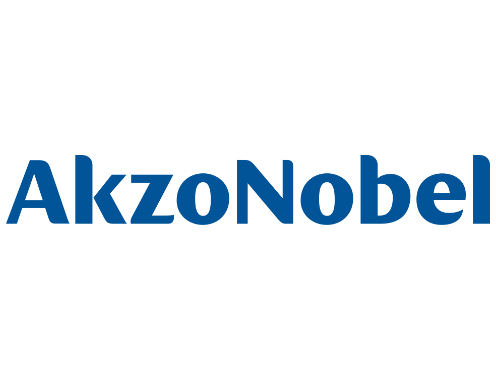
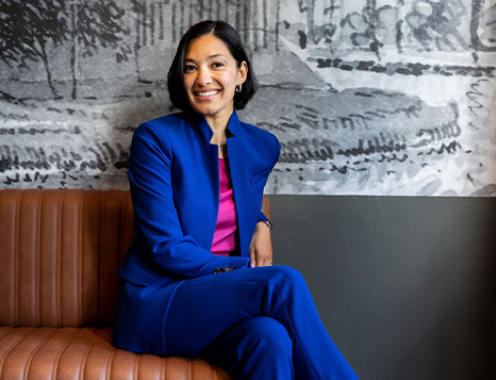
Maryana Reurings-Tsiganko - E2E Process Transformation Program Director at Pharming Group
Maryana Reurings-Tsiganko is the E2E Process Transformation Program Director at Pharming Group N.V., a global biopharmaceutical company specializing in rare and life-threatening diseases.
Speaking with Thomas Powell, Maryana offers a brief insight into Pharming’s culture and the nature of the industry. She further discusses her management approach and ethical leadership style, while also sharing standout characteristics and advice for aspiring leaders.
What’s the most rewarding part of your role at Pharming Group?
For me, the most rewarding part about working at Pharming, and within the rare diseases industry, is knowing you are doing things for a larger cause, and knowing your work is valued and appreciated by patients daily.
I have an opportunity to work with many passionate people who feel the same way and share the same mission and vision. The people are willing to go beyond their responsibilities and help their teams because they see that greater purpose. What I like the most is having an opportunity to work with a very diverse group of people that you can learn a lot from which stimulates good conversations.
Additionally, the nature of the industry requires the company to be agile and accommodating, allowing me to work in a challenging environment, and brainstorm ideas and solutions daily.
What is the most memorable moment from your career?
If I were to reflect on recent times, the answer is joining Pharming. Previously, I had never worked for a biopharmaceutical company. I’d also never worked for a small-sized company, nor developed and established a department from scratch – these were new challenges.
I came to build a department from the ground up, requiring many different skillsets. For example, I utilized stakeholder management more, especially for non-executive and executive board members. I also had to invest more time in change management, communicating with people, taking them along the journey, showing them the value, and getting their buy-in. For me, it was rewarding to see and have people listen.
Another challenge I encountered was the culture change. I think sometimes people underestimate that the cultural aspects play a huge role. Coming from the USA, I had to learn to understand differences in approaches and communication - what works and doesn’t work – really opened my eyes to the best way to build the department and ensure people understood what I was trying to achieve and join my side.
I also learned I had to be more patient, which helped me grow personally and professionally. In the past, I was a go-getter and very to the point. Now, I really take the time to understand and listen.
How do you develop individuals who can manage daily operations while also thinking strategically about processes, the bigger picture, and their careers?
The key to managing any team is establishing trust and understanding.
You need to be able to create a safe environment. So, when managing teams, especially across borders, you need to invest time into understanding their culture, along with their preferred way of communication and how they like to manage and want to be managed. Be flexible in your approach and be willing to accommodate different preferences in communication, as every team member will have differing preferences; there’s no one way to approach leadership or management.
Listening is the most important element. Listen to understand your team’s wants and needs. At the end of the day, it is about having meaningful conversations, building relationships, and establishing trust. Also, creating the right balance between ensuring the team can work on things they are comfortable with and mastering new things to challenge them.
Furthermore, give the team space to be creative. They can experiment and have that strategic thinking and creativity, but you should be there to support them and have their back.
I would add that you should ask your team the right questions to help them realize their dreams. Understand what they need from development and support standpoints. Pick up on seeing their potential; sometimes people don’t realize they have certain qualities or potential, and I think it is the responsibility of a manager/leader to help them see that.
If you could go back and give your younger self some advice, what would it be?
The piece of advice I’d offer is to be patient and not expect success overnight. It is a combination of persistence, hard work, and a bit of luck, as being in the right place at the right time helps.
Realize it is okay to take your time, and it’s okay that you don’t have to know everything. You’re allowed to question your direction and path, and you don’t need all the answers. It’s a journey; it’s okay to be lost sometimes.
Drawing on your journey, what advice would you give to aspiring leaders?
Be authentic - that’s number one. Always stay true to yourself. It takes courage to look at yourself critically and be honest with yourself, what you can achieve, and how you can support the organization or team.
Continuously balance confidence with humility; you don’t want to be arrogant. However, your team needs to see your confidence in where you are going, where you are, and the vision.
Sometimes, we underestimate the element of empathy, too. People are more willing to listen and work with you if you show them that you care and understand their challenges and struggles. And you should be there to support them and have their back.
What type of leadership style inspires you?
Ethical leadership inspires me, characterized by a strong moral compass, commitment, and doing what is right – something I stand for. Ethical leaders demonstrate integrity, honesty, and transparency, which speaks to me. If I see that in other leaders, they’ve already won me over as I greatly appreciate those qualities.
I always ask myself, “What is the right thing to do?” That guides me through my day and career. You cannot go wrong if you ask that question.
Ethical leaders also tend to lead by example. What I have seen work within my teams is if I tell them to do something or if I stand for something, I demonstrate it first. Actions speak louder than words, so that helps to deliver the message. Hence, it plays a critical role in setting a trustworthy culture and an environment where people feel valued and driven.
What’s next in your career journey?
I like to take risks, and I like challenges. I try to push myself outside my comfort zone as much as possible. So, the next step would be no different. I would be looking for something that triggers curiosity, excitement, and a little bit of fear; either doing a different type of work in the same industry or the same work in a different industry, which can be equally challenging.
I really enjoy managing teams and developing people, giving them confidence, guiding them, and helping them achieve their dreams gives me happiness. Managing larger teams would be my preference.
In the long term, becoming part of an executive or non-executive board in an organization, where I can have more impact, drive strategic decisions, see those materialized, and help organizations develop and grow. Just like with people, I like having an impact and seeing results.
What is your favorite quote and why?
The quote, “Determination and perseverance move the world; thinking that others will do it for you is a sure way to fail,” resonates with me as it's how I live my life. I don’t take life for granted and I do not expect things to be handed to me.
I believe you can achieve anything you put your mind to. I apply that in my career and personal life, and it has never disappointed me. Willpower is the most critical asset you can have. If I really want something, I will get it.
What was the last thing that made you smile?
My almost two-year-old boy. It’s important not to forget about our personal lives, and he really puts a huge smile on my face.
Sometimes I am envious of certain childhood behaviors; kids are blissfully happy. Sometimes when you reach adulthood you forget about remaining positive. He brings that back to me, gives me that happiness, and reminds me to look at life through a different lens – it doesn’t always have to be so serious.
Thank you to Maryana for speaking to Thomas Powell, Consultant in our Finance & Accountancy recruitment division in the Netherlands.
Views and opinions contained within our Executive Interviews are those of the interviewee and not views shared by EMEA Recruitment.

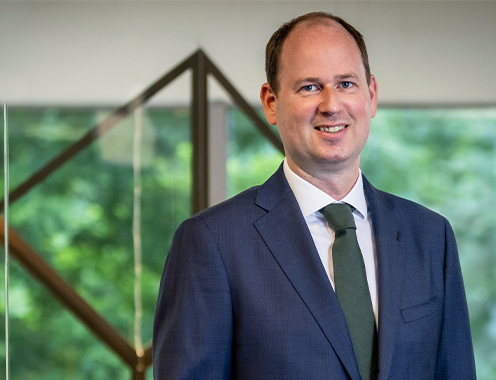
Alain Mulder - Regional Director Europe, Central Asia & Sr. Director of Global Projects at IMA
Alain Mulder is the Regional Director Europe, Central Asia & Sr. Director of Global Projects at IMA® (Institute of Management Accountants), an association focused exclusively on advancing the Management Accounting profession.
Alain discusses his international role at IMA, sharing insights into the key drivers of success and challenges ahead. Alain also references membership/service offerings, revealing the recently launched IMA corporate membership.
Since 2020, EMEA Recruitment has been the European recruitment partner of IMA. Through this partnership, we are pleased to offer a free, three-month IMA membership trial. To find out more/redeem, please visit: emearecruitment.com/pages/institute-of-management-accountants
What excites you about working for IMA?
How entrepreneurial we are. That may be surprising, because IMA is a non-profit organization, but we are very entrepreneurial. Not in the sense that we need to make as much money as possible, but how can we ensure that we have the best offerings for our members?
We are really focused on our mission to empower and connect business professionals. In every meeting, when we discuss ideas or challenges, we always think about how we can deliver value for our members or increase our membership numbers in a specific country to scale our impact. That whole entrepreneurial mindset is something I really like within IMA.
I imagine no two days are the same when you get that insight from different cultures and global exposure.
Indeed. That’s probably the same for many people who work in an international company.
My morning always starts with a little bit of Europe, and maybe I’ll help colleagues in China or work with clients in Kazakhstan. Then, as the day evolves, I end up in the Americas. I just finished a meeting in the US before this interview. Every day, I cover the whole world, as our members are everywhere, so it’s really nice.
What I also like is meeting our members and seeing so many industries come together. For example, we have people who work in the airline industry, others in the food and beverage industry, etc. When you visit their company, they tell you everything and you get a lot of insights from many businesses.
As a non-profit organization, what are the three to five key drivers to success that you monitor?
Number one is engagement. Are our volunteers engaged with IMA? Are our members engaged with our product learning offerings? Are they going to events? Engagement comes first.
Then, of course, we look at growth figures. As a non-profit, we want to make a larger impact in certain countries and globally. I focus on growth, because I strongly believe that when we promote, for example, the CMA® (Certified Management Accountant) program it delivers more value to our members.
It makes me happy if a member meets with a recruiter or a hiring manager and they recognize or recommend IMA. This is what I want to achieve, so this is an indicator that I look at.
I also assess our corporate member growth, which is another area where we can make a lot of impact. When a corporate becomes an IMA member, it can include 30 or more individuals at once, and they get an individual customized, branded micro site to access all online learning and become part of the global IMA community of Finance and Accounting professionals.
We recently launched IMA corporate membership. We had our first large companies, including Novartis, Körber, and others sign up, so I’m really excited about it. I think it is a great opportunity for companies to engage learning within their teams.
Additionally, what I like about IMA as a global association is it can really help you develop your profession. If a company decides to purchase a course on AI, for instance, you can develop those people as well, creating an impact.
To summarize, number one is engagement, and then growth from both the individual and corporate angles.
It's interesting to see the different approaches and the added values that differ slightly. The reach from a corporate perspective can be massive, especially for some of the international businesses you've been working with.
Yes, and you see the macro developments, too. If one company in Europe says they want to sign their team up for the CMA in another country, then I realize that the economic growth or the opportunity for that company is in that region. That is really interesting to see, as well.
Is that something that companies have been quite selective about - it's not been a widespread approach for all levels or specialisms in a company, it's been quite geographically focused?
Yes, sometimes they suddenly move their shared service center to another region or country. In Central Europe, we now see teams signing up. But I also had a company who suddenly said, “Okay, we will do it in Latin America as we have a big team there.” Those shifts and insights are really key.
How do you ensure that your strategic decisions align with IMA’s values and your customer company, client industry, and market demands?
In every meeting, we always have those customer personas and think about what is in it for them.
As an association, you get false leadership, as well; we can get caught up in new ideas, for example. We should do a course on that or write an article on this topic.
Sometimes, we realize a certain topic isn’t that interesting to our members, so we need to align with our mission and strategic priorities. IMA stands out from that perspective; we are very member-focused in all our activities.
What would you say are the three challenges for you at IMA?
There’s one that encompasses everything: staying relevant. We don’t have an issue with it, but in each meeting with a company or member, I always ask them what they think of IMA, what they like and dislike, what skills do you need, and their future perspective. That is continually happening. If we have outdated courses, we lose our relevance.
With the CMA program, we need to ensure that the skills and everything they learn are something they can implement in their role the following day. We must also stay relevant for those at each career stage; someone who just graduated from university or college has completely different needs than a senior executive. Ensuring we have something for all those segments is a challenge and that's something we always work on.
Do you feel that Finance professionals generally have a large interest in staying relevant, training, and developing themselves for their roles?
Yes, Finance professionals are very interested in developing themselves and that stands out. They are very much focused on earning certificates.
They are always looking for other skills, too. When I go to chapter events, there’s always a handful of members approaching me asking if IMA has a course in a specific topic, as it’s something they need within the next year. I like that a lot, as I can text my colleagues about their interests, which is very useful for us. It amazes me how development-focused Finance professionals are.
Has there been a topic where you've not been able to pre-empt a relevant course, or has somebody asked and it's allowed you to create one?
Sustainability and AI are currently very hot topics, and those topics develop quite fast. People used to ask us for an introductory course - the basics of AI or sustainability - and now people want advanced courses.
For example, with sustainability, we did an in-person conference after the pandemic in 2022. We had presentations about sustainability and people were asking what's in it for our company or how should we handle it within our company – basic level.
But, when we had our conference in 2024, people were up to speed with everything; companies are using and implementing it. I see the same now with AI and we are working on more advanced courses in those fields. The next one will launch soon, because people and companies were outspoken about wanting those courses.
How does IMA address corporate social responsibility?
We do it within our organization, for the staff or volunteers. However, where we make the biggest impact is our outreach to the global community.
Corporate social responsibility touches on sustainability and other topics, so by embedding it in our courses, we impact many companies around the world.
We are very much focused on ethics, too, so all our members have to sign up to our ethics framework, which ensures they are ethical at work. We also have an ethics hotline, so if people have an issue, or have second thoughts, they can always reach out to the hotline and ask for advice. Those things allow us to make an impact in the field.
What is the biggest myth about your profession you would like to debunk?
People say Corporate Accounting is boring, and that is not true. I think Corporate Accounting is one of the most exciting careers to have, because you're at the heart of decision-making within companies.
Everything starts with the Finance team; you give input to management, and you are involved in that input. I had a very nice meeting with one of our members, who works for a big pharma company. Some of her family members had health issues, and now as a Finance professional, she is involved in investment decisions to tackle those health issues. That is very impactful. So, Finance professionals can deliver advice for the development of those new things and projects to make a difference.
I'm a big fan of the Shark Tank series. That is basically what Finance professionals are doing; they are looking at business cases and investment decisions at the highest level. So, it’s a really exciting career, especially for those who just graduated.
People should realize there's a big difference between Public Accounting (auditing) and Corporate Accounting, too. Corporate Accountants who look forward are involved in investment decisions, give advice to management, and even become managers within their company. It's an exciting career.
When I graduated, I worked for a very large multi-national. If I wanted to know if something was going to happen within the company, the Finance team was busy. When I saw our CEO constantly going to the Finance and FP&A teams, I knew that something was going to happen, like an investment or a merger acquisition. That really shows how important those teams are and how exciting that career is.
From a study perspective, is there any advice you would have for those looking to choose a study area or enter a Finance career?
I did a presentation recently for the students at Istanbul University. It focused on how to enter the field. Networking was my number one piece of advice. Many students focus on their studies and obtaining high grades - which is completely understandable, and they should continue - but you should also start networking.
Ensure you have a LinkedIn profile to show a recruiter or hiring manager that you are interested in Finance. Go to network events, those can be IMA or other partners or associations, because you get to meet Finance professionals. Besides studies, focus on networking, too.
Do you have any advice or strategies for those who would like to pivot industries?
I meet a lot of talented Finance professionals and see some are only focused on their jobs. They're really talented, but they don’t focus on the big picture. It's also important to understand the whole business and to network.
80% of your work should be doing it well, but spend time understanding the rest of the business - that's where you can really make an impact. What are the priorities of your leadership? What is the company’s strategy? Then think about what you can do in your job to deliver on those priorities. If you start doing that, you really become useful to the leadership team, and then you can eventually step up and join the team.
I also always advise people, students, and young professionals to take the opportunity to sit in meetings with your executive leadership team. Observe them as much as possible, because it's a mini-MBA moment. You can figure out their priorities, and how they handle challenges and negotiations. Those people are senior for a reason.
What would you say is the most rewarding part of your role?
When members tell me that they have grown in their careers. Recently, I met a member in London, and she told me she landed a job within a great company because of IMA’s network. That's why we are here as an association. I like seeing people get promoted and seeing that impact.
Who’s the most inspiring person in business for you?
I read a book, Amp it Up by Frank Slootman. He’s Dutch and the CEO of Snowflake, a cloud-based data storage company, headquartered in the USA.
First, I read it on my Kindle, but it was so good that I purchased a hard copy. It detailed how to bring an entrepreneurial mindset to big corporates. That founder mindset is about creating urgency to deliver growth and maximize returns - not only financial returns.
I still read that book when I have a project to check if there are things I can implement. I advise people to read it if they want to deliver more growth within their company. It was also a Wall Street Journal best seller. He grew up in my neighboring city, which is a coincidence, but it’s a really good book.
Outside of networking and IMA, what are your passions or things that you love to do?
From a personal perspective, I really like Formula One. I’ve been a big fan since 1993. What I really like about it is things obviously go fast, but also the competition level - sometimes it’s not nice, sometimes it is. I love the strategy behind it, too. Are they going to do extra pit stops or are they going to overtake? There's also a lot of data mining behind it, which I really like.
Also, I used to have my own company focused on the Amsterdam region, but I missed the international environment. I get a lot of that within IMA. An international environment is very important to me. What I always tell people is, if you want to understand other cultures, you can go on a tourist trip and sightsee, but when you work somewhere, you delve into it and understand everything much better.
Thank you to Alain for speaking to Georgia Wright, Director in our Finance & Accountancy recruitment division in the Netherlands.
Views and opinions contained within our Executive Interviews are those of the interviewee and not views shared by EMEA Recruitment.
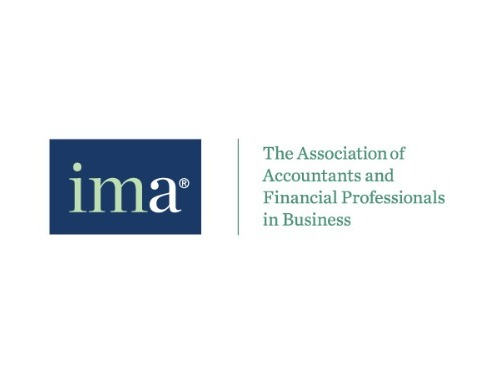
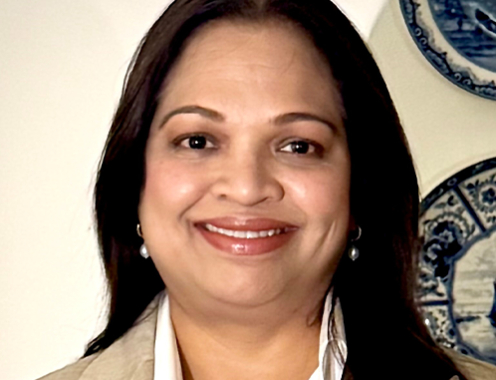
Anita Bhat-Zutshi - Former CFO, Ice Cream Business at Unilever
Anita Bhat-Zutshi is the former CFO, Ice Cream Business at Unilever in Rotterdam. During her career, she has spent over 25 years with the organization, having started out in Audit and Treasury.
Anita explains how she builds psychological safety in her team, shares the epiphany that drives her philosophy, and offers advice for women in senior Finance roles.
What have you learnt as a leader over the past 12 months?
The biggest learning is that I need to go to where people are in their thinking and not try to lift them to think more like me. Everyone has different starting points, different aspirations, and motivations and I should not just tolerate but truly embrace these differences.
My focus then shifted from, “Why are they not more like me?” to, “Strength lies in differences – not in similarities.” I started celebrating diversity of gender, thought, personality, etc. in my teams, actively seeking it.
I also shifted my leadership style from a 3D (direct, drive, deliver) approach to a 3E (envision, empower, energize) focus – a style I have used over the past few years as a global leader.
It’s important to nurture great talent density in the team and not have a cookie cutter approach based on your own self.
What’s your philosophy on team building, and how do you create an environment where individuals feel motivated and empowered to perform at their best?
I have led large, global teams for the past decade, and firmly believe that honesty and vulnerability promote trust, which - alongside diversity, inclusion, and psychological safety - builds high-performing teams.
As a leader, balancing empathy and drive with talent density, fostering honest yet constructive feedback is essential. I believe in psychological safety by encouraging diverse views, sharing both successes and failures equally, and seeking constructive feedback, including for myself.
I am often an open book, sharing my own challenges and learnings, which makes others feel comfortable doing the same. I make a point of giving my opinion last to ensure other team members can freely contribute; too often, leaders speak first, and through that set the tone of other responses, then we all lose out.
To me, diversity goes beyond gender and includes diversity of thought, leadership style, and personality among others. It's important to value different perspectives and support talent growth, even if it means letting key talent move on to better roles and different experiences, no matter how much you want to keep them.
I am proud of the teams I've built and am happiest when they thrive independently, occasionally remembering me on key occasions with a kind note or text. This, for me, signifies true leadership success.
What role does collaboration play in driving financial success? And how do you ensure Finance is seen as a strategic partner to other departments?
For Finance to be seen as a strategic partner, it must behave as one. For this to be true, there is an important shift from control and compliance to deep understanding of the business, strategy, and on what sits behind the numbers.
Finance touches all aspects of a business, so you must collaborate, constantly build your knowledge through others, understand the drivers behind each part of the business, be driven by value creation, and actively manage disruption to create sustainable value in the long term.
What is the biggest myth about your profession that you want to debunk?
A lot of people look at the role of a CFO as a dream role – which it is. Equally, a CFO role at whatever level is extremely demanding. There is a lot of blood, sweat, and sacrifices needed. At any CXO level, you need to have great passion, resilience, and tremendous energy to sustain not only your own motivation, but of those around you. This is especially true in the tougher times and there are a few of those! The number of hours per week or a work/family balance becomes irrelevant, to be honest – it’s a 24/7 role. Trust me!
Further, to be successful in these roles, it has nothing to do with your qualifications or what you have achieved – it’s about the future. You need to constantly learn, unlearn, relearn, and reinvent yourselves in the journey to get there and stay successful.
To debunk any myth about Finance as a profession – yes, maybe we love a spreadsheet, we love structure and process, but our value is so much more than that. Listen to your Finance partner, bring them in on your business strategy - they are your best friends!
What risks have you taken throughout your career and how did they help you get to the level you are at?
The most important risk I have taken is to be part of challenging assignments, chasing audacious goals, taking the unsexy career path - which naturally pushed me outside my comfort zone, giving me invaluable experience, while building self-awareness and self-confidence. With these diverse experiences under my belt, I feel confident taking on any task now; I know I will be able to see it through.
What was the most unexpected lesson you learned in your career so far?
In my mid-20s, as I was starting my career and married life, I was diagnosed with a chronic illness, which was devastating to me. I remember brooding, “why me?”, till I had an epiphany that thankfully it was me and not anyone else in my family. I had always struggled to find meaning in my existence as a middle child till then, but in that moment, I realized that my purpose was not to be entitled but to be in service. A philosophy that I live with to this day.
I always believe that I am in service of the business, my team, my friends and family - this guides my approach to work and life to this day.
If you could go back and give your younger self some career advice, what would it be?
I was a fearless girl. My mother nicknamed me after the first woman who fought for India’s independence – Rani of Jhansi. As a young girl, with the naivete of youth, I had strong courage of conviction with a desire for perfection, which made me very stubborn and fiercely independent, placing a lot of pressure on myself, especially as a young working mother.
In hindsight – with years of experience and some wisdom – I would like to tell that young girl that there was no need to be a super woman, to have the courage to stand up, with the wisdom to stand down. Life is all about striking a balance and interdependence.
As a female leader in a traditionally male-dominated space, how do you champion female empowerment in the workplace?
What initiatives have you led or supported to promote women in leadership roles?
As one of the few female Finance leaders in any room, I am acutely aware that I am in a unique position to actively change the status quo, and champion female empowerment and representation. These have always been close to my heart, and I do take this responsibility seriously.
- As a role model, I help women see the art of possible with my journey. I generously share my experiences including failures with them, helping them navigate similar challenges in their careers – learning from my experiences.
- As a sponsor, I have very often taken calculated risks on key female talent and have easily achieved 50% gender diversity in my leadership teams for the past ten years. These women leaders have thrived, been successful on their own, moving onto many CFO/leadership roles.
- As an active mentor and coach to many female leaders including outside of Finance, I make myself available when they reach out. This is my way of paying it forward.
- As a female representative around the table, my philosophy is to be the voice of reason and call out bias when I see it. I strongly believe we do not need gender quotas, but do need strong advocates and courageous leaders to uproot systemic and largely unconscious bias.
I’d like to also point out that at least two of my big career moves was enabled by two men, who saw the potential in me and enabled a level of flexibility at a time when it was very rare. So, everyone has potential to enable and uplift.
What is your top piece of advice for women pursuing a career in Finance?
Unlike Marketing or HR, which are more women centric, it is true Finance is a tough profession for women. This is reflected in the fact that women occupy less than 15% of CFO roles in top organizations in the world. It will take us more than a century to get gender parity.
In this context, my advice is for women who are in that top 15% already: Please actively lift other women, proactively mentor, coach and support them. We need to celebrate and advocate for our sisterhood, which will be the biggest gift we can give each other. I don’t see that happening often enough.
For all women in Finance: Believe in yourself, keep the fire of ambition burning, actively seek mentors and sponsors, learn the rules and play them well.
Who is the most inspiring person in business for you and why?
Indra Nooyi – former CEO of PepsiCo - has been a truly inspiring role model for me. Her extraordinary success becoming a global business leader of iconic organizations, delivering performance with purpose, while breaking the barriers of gender and race, and remaining true to her roots has been a source of deep inspiration.
I have watched many of her public interviews where she does not shy from sharing her vulnerabilities and the impact of her choices, which working women of color around the world like me can so relate to.
I recently finished reading her book, My Life in Full, which in my view is a must read for all working career-focused women. I hope I get the opportunity to meet her at least once in life.
What is the one book, podcast or external resource you would recommend to all?
I believe that we need to be the change that we want to see. I first read The 7 Habits of Highly Effective People in business school (30 years back), but its wisdom on self-development and leadership stays true to this day.
Recently, I came across America Ferrera’s TED Talk My identity is a superpower – not an obstacle – it’s a real tribute to embracing who you truly are. Its hugely moving and inspiring and there was so much that I could relate to. I would recommend it as a watch.
If leadership styles were ice cream flavors, which flavor best represents your leadership approach and why?
I believe in diversity and lots of inclusion – hence my ice cream flavor would be unique, bold, and innovative. Variety, as you know, is the spice of life!
What’s the last thing that made you smile?
Watching little kids perform makes me shed tears of joy with a smile. This happens every single time. There is something about their innocence, camaraderie, and earnestness to the performance at hand that brings back the purest of emotions. I love the feeling it evokes in me.
Thank you to Anita for speaking to Georgia Wright, Director in our Finance & Accountancy recruitment division in the Netherlands.
Views and opinions contained within our Executive Interviews are those of the interviewee and not views shared by EMEA Recruitment.
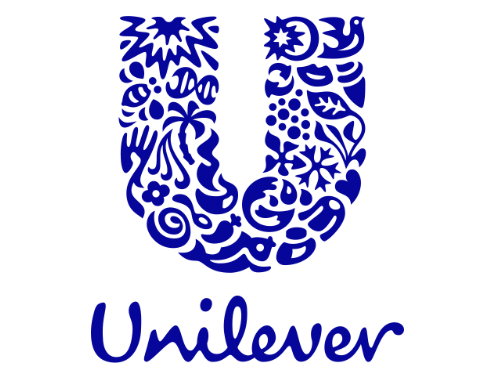
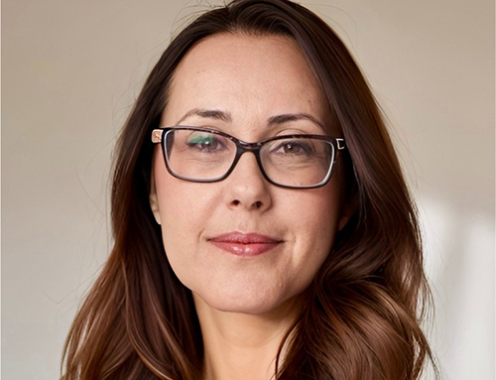
Inbal Orbach - Vice President, Global Head of FP&A at Lonza
Inbal Orbach is the Vice President, Global Head of FP&A at Lonza, where she leads financial strategy and execution for one of the world’s top suppliers to the pharmaceutical and biotechnology industries.
In this interview, Inbal discusses her approach to driving performance and innovation within her team, the role of AI alongside human expertise, and Lonza’s efforts to support women in Finance.
What are the key strategies you implement to drive performance within your FP&A team?
To drive performance, I set clear objectives aligned with the company's broader goals, maintaining a unified direction. Data-driven decision-making is central, supported by robust data analysis. Regular performance reviews help us stay on track and make necessary adjustments.
Leveraging the Lonza Engine enhances operational efficiency, strengthens customer proximity, and drives sustainable value creation. Maintaining close collaboration with the business ensures transparency, enabling swift risk identification and mitigation.
What performance metrics do you consider most critical for FP&A, and how do you ensure your team stays aligned with these metrics?
Critical metrics include budget variance, forecast accuracy, cost efficiency, and revenue growth.
To ensure alignment, I communicate these metrics clearly and integrate them into performance evaluations. Regular check-ins help track progress and maintain focus. Operational efficiency and customer proximity are key components of our performance framework.
How do you ensure effective collaboration between FP&A and other departments to support overall business performance?
Collaboration is fostered through regular interdepartmental meetings to discuss financial performance and upcoming projects. Open communication channels encourage transparency and information sharing. Integrating planning processes and forming cross-functional teams ensures diverse perspectives. The organizational structure, including Integrated Biologics and Advanced Synthesis, further enhances operational efficiency and customer proximity.
What initiatives do you have in place to develop and retain top talent within your FP&A team?
Talent development is a priority, achieved through professional training, mentorship, and career pathing. Recognizing outstanding performance is key, alongside offering hands-on learning experiences, such as job shadowing and complex projects.
Lonza’s Finance Academy provides a structured training calendar, a Finance Competency Framework, and easy access to training resources, ensuring clear career pathways and growth opportunities.
What future trends do you see in AI and machine learning in FP&A, and how are you preparing to leverage them?
AI’s potential in financial processes is actively explored through investments in advanced AI tools and team training. A commitment to innovation ensures staying ahead by continuously integrating emerging technologies.
Recent pilot programs have demonstrated a significant reduction in manual reporting efforts, allowing the team to focus on higher-value strategic activities.
How do you balance AI and machine learning with human expertise in FP&A?
AI excels in data processing and pattern recognition, while human expertise is essential for strategic decision-making. The team is trained to interpret AI-generated insights, ensuring accuracy and relevance.
Ethical considerations are paramount, and guidelines are established to maintain transparency and trust.
By combining AI-driven financial modeling with human judgment, we aim to improve forecasting precision while maintaining strategic oversight.
How do you foster a culture of innovation and continuous improvement within your FP&A team?
A culture of innovation is encouraged by promoting experimentation and learning from failures. Open idea forums and continuous learning opportunities keep the team updated on industry trends. Recognizing and rewarding innovative thinking is crucial. Innovation is embedded in strategic priorities to drive continuous improvement.
A recent initiative allowed team members to propose automation ideas, leading to the successful implementation of a new leadership performance dashboard, reducing slide preparation time, and allowing faster data and insights generation.
What role do mentorship and sponsorship play in advancing women's careers in Finance? Have you had mentors or sponsors who impacted your career?
Mentorship and sponsorship have provided me with guidance, advocacy, and opportunities. Offering the same support to others is a priority. Lonza promotes structured mentorship programs and diversity initiatives to promote career advancement for women in Finance.
I have personally benefited from a sponsor who advocated for my leadership development, which directly influenced my career progression.
How do you manage work-life balance, and what advice would you give to other women in Finance?
Work-life balance requires prioritization, time management, and setting boundaries. My advice is to prioritize wellbeing, seek support, and establish clear work-life boundaries.
One effective practice is leveraging technology to improve efficiency, allowing for better time management and ensuring critical tasks are completed within work hours.
Are there initiatives supporting women in Finance? Can you share some success stories?
Lonza runs several initiatives to support women in Finance, including mentorship programs, networking events, and diversity committees. These initiatives have enabled many women to advance to senior leadership, fostering inclusivity and collaboration within the organization. Our commitment remains strong in ensuring a supportive and equitable environment for all.
Thank you to Inbal for speaking to Meriel Graham, Director in our Finance & Accoutancy recruitment team in Switzerland.
Views and opinions contained within our Executive Interviews are those of the interviewee and not views shared by EMEA Recruitment.
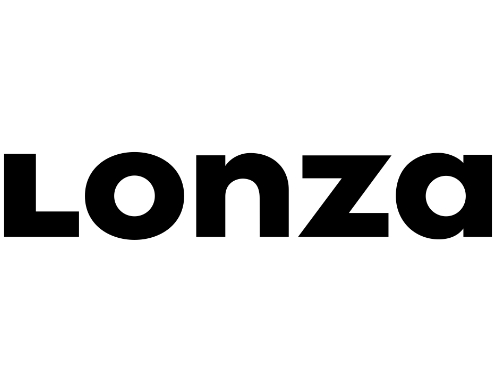







You can also use your social account to sign in. First you need to:
Accept Terms & Conditions And Privacy Policy